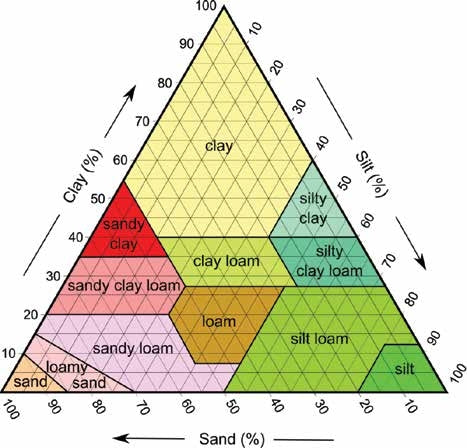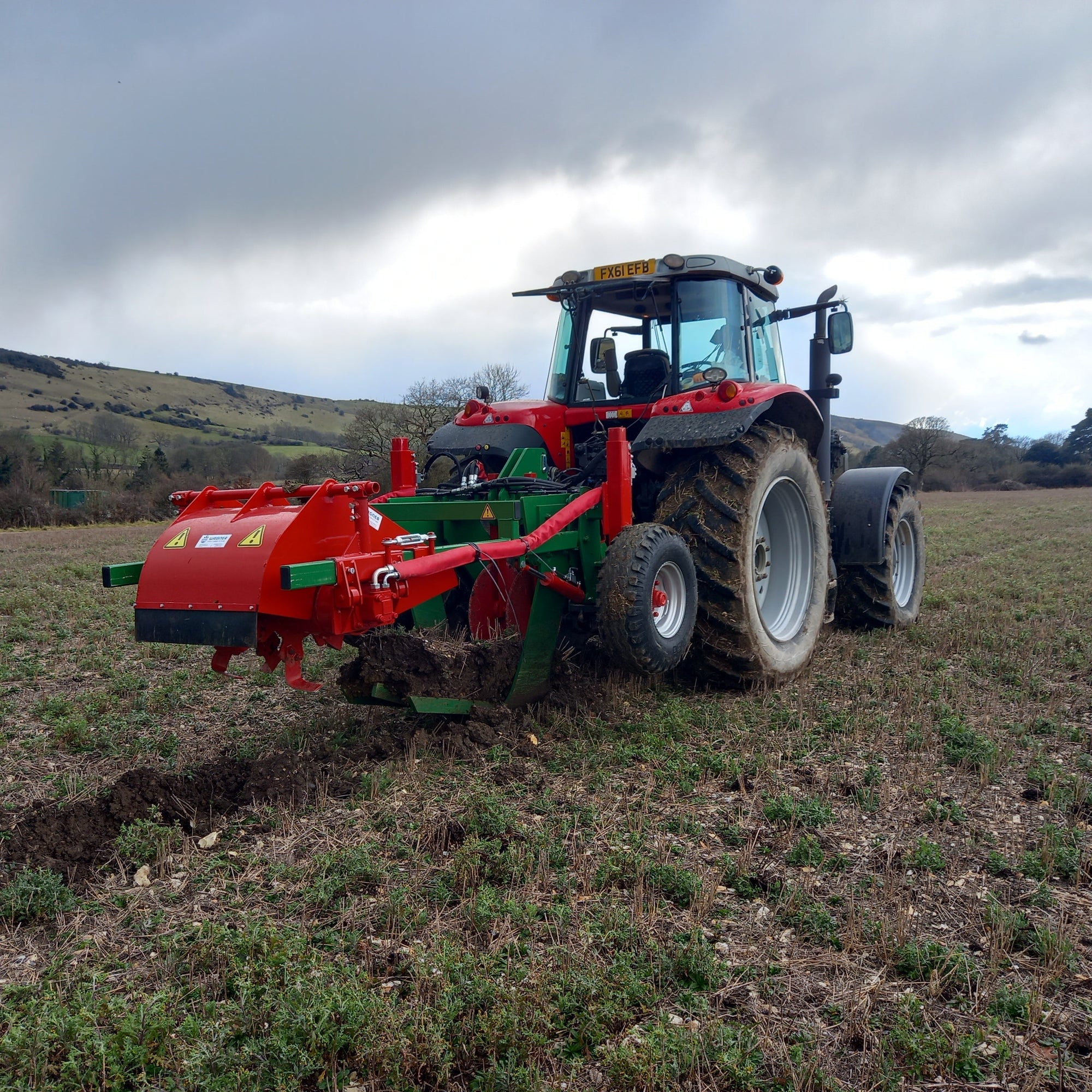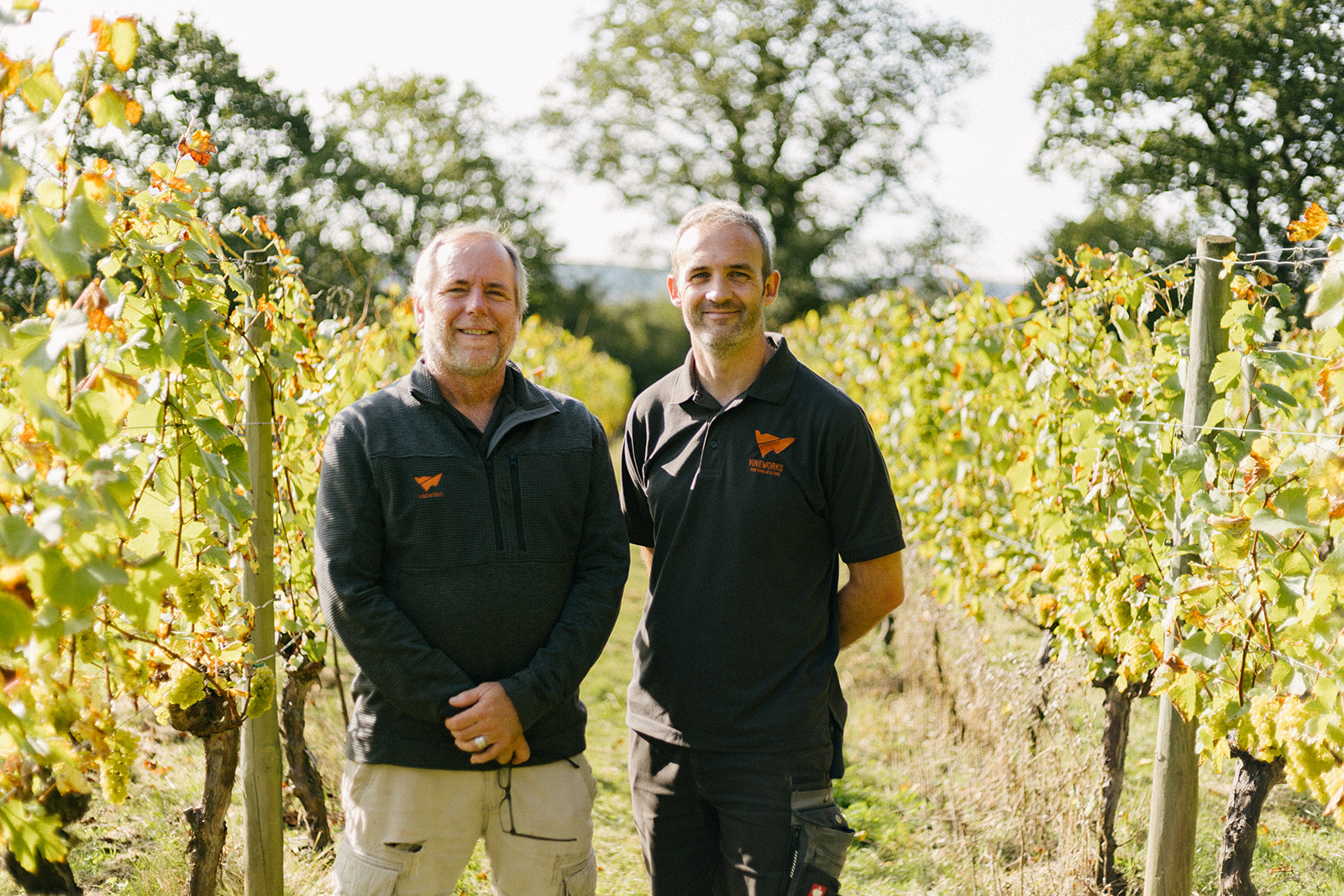

THE INFLUENCE OF VINEYARD SOILS
The influence of vineyard soils on wine quality has long been recognised by both winemakers and vine growers.
This impact is largely as result of the soil’s influence on vine vigour and its indirect effect on wine composition. An overly vigorous vine will produce excess canopy which creates shading that will limit ripening. This excess vegetation also traps moisture in wet or humid conditions which increases disease pressure. Although this somewhat analytical view may not have the romance of traditional views on terroir, there is no doubt that a vineyard’s soil and how it is managed plays a considerable role in creating wines of quality. It is essential that vineyard soils are managed in a way that encourages a healthy, balanced growth of foliage and fruit.
When assessing a site’s soil characteristics for viticulture, the first element to consider is its broad soil type. Soil types can be categorised by their varying composition of sand, silt and clay. While there is no such thing as a perfect soil make up, high potential vineyards will have a ratio of the three, that when incorporated with a suitable management programme, encourage ideal vine balance and crop production. Clay soils hold nutrients and water well, but are slow to drain and take longer to warm in the spring. Whereas sand and silt soils leach nutrients readily, but rapidly warm in spring. Therefore, soil management practices must be tailored to suit the vineyard’s individual soil type. For example, a heavy clay site will likely require cultivation in the autumn or spring to aid soil warming and aeration, but will be less likely to require considerable nutrient applications. On the other hand, a very sandy site would not benefit from frequent cultivation, but will need close monitoring of nutrient levels.
The next important consideration is the soil’s pH. A soil’s inherent acidity or alkalinity impacts the rate at which certain essential nutrients are absorbed by the grapevine. In extreme cases this can result in deficiencies or toxicity. It is best to make adjustments to soil pH pre-planting as pH cannot be changed rapidly. The pH of a soil is in a constant state of flux and therefore should be monitored regularly and managed to maintain a suitable level. Highly alkaline soils will benefit from organic matter applications to increase acidity, alternatively acidic soils would require additions of calcium based products (commonly lime) to increase alkalinity.
Somewhat counter intuitively, the final factor to evaluate is the soil’s nutrient content. While there are a number of nutrients essential to vine growth and health, grapevines are not a particularly nutrient-demanding crop and can grow well in a variety of conditions. In general, any nutrient imbalances in the soils can be corrected pre-planting. However, their impact in the soil long term will be directly linked to the soil type and pH as mentioned above. It holds that grape vines require a steady, suitable supply of nutrients in order to remain healthy and productive over the long term. Their ability to withstand fungal infections is closely related to nutrient supply, which is of particular importance in the UK’s disease conducive climate. Therefore, regular monitoring of the soil and vines themselves for deficiencies is essential.
Managing vineyard soils begins at the pre-planting stage where adjustments can be most effective. After site and variety selection, the most impactful decision that can be made for the future of the vineyard is rootstock selection. Pairing an appropriate rootstock for the characteristics of the soil will best set up the vineyard for balanced future growth. Considered management practices in the vineyard will keep soils in optimum condition and vines producing high quality yields season after season. VineWorks recommends collaborating with experienced viticulturists and agronomists to ensure the right approaches are carried out to protect and maintain your vineyard soils.



